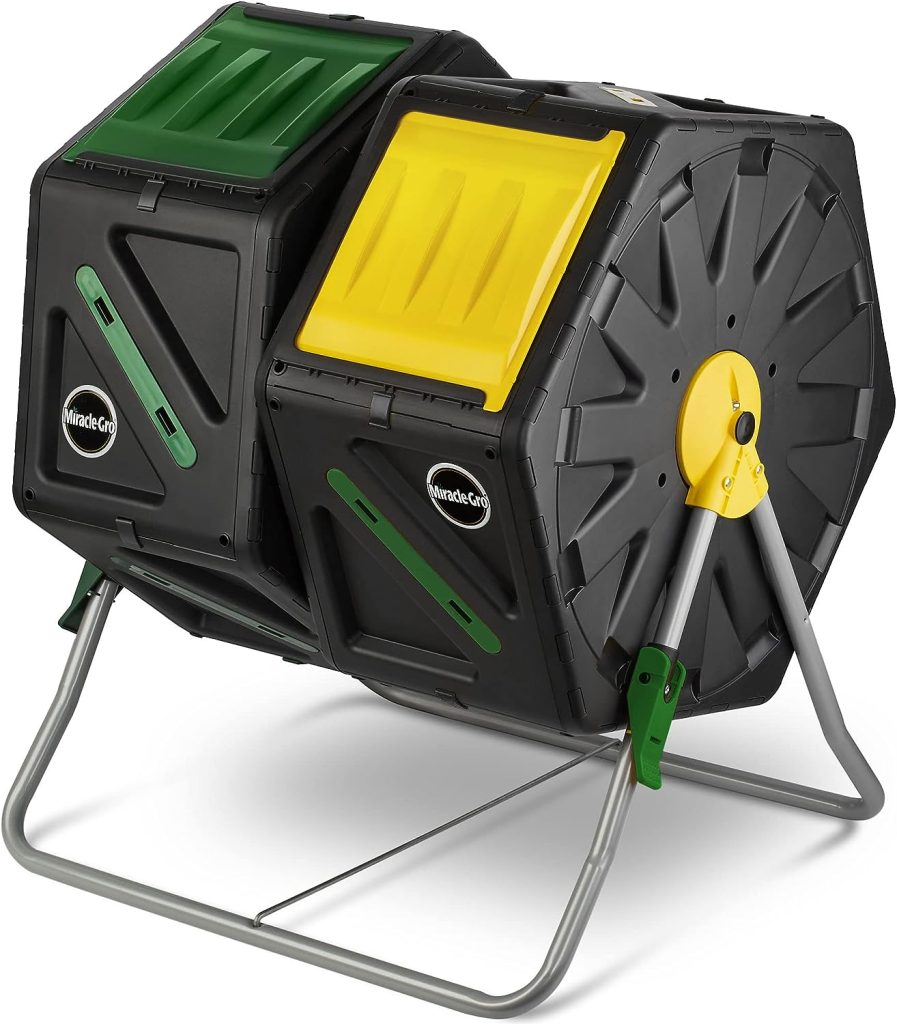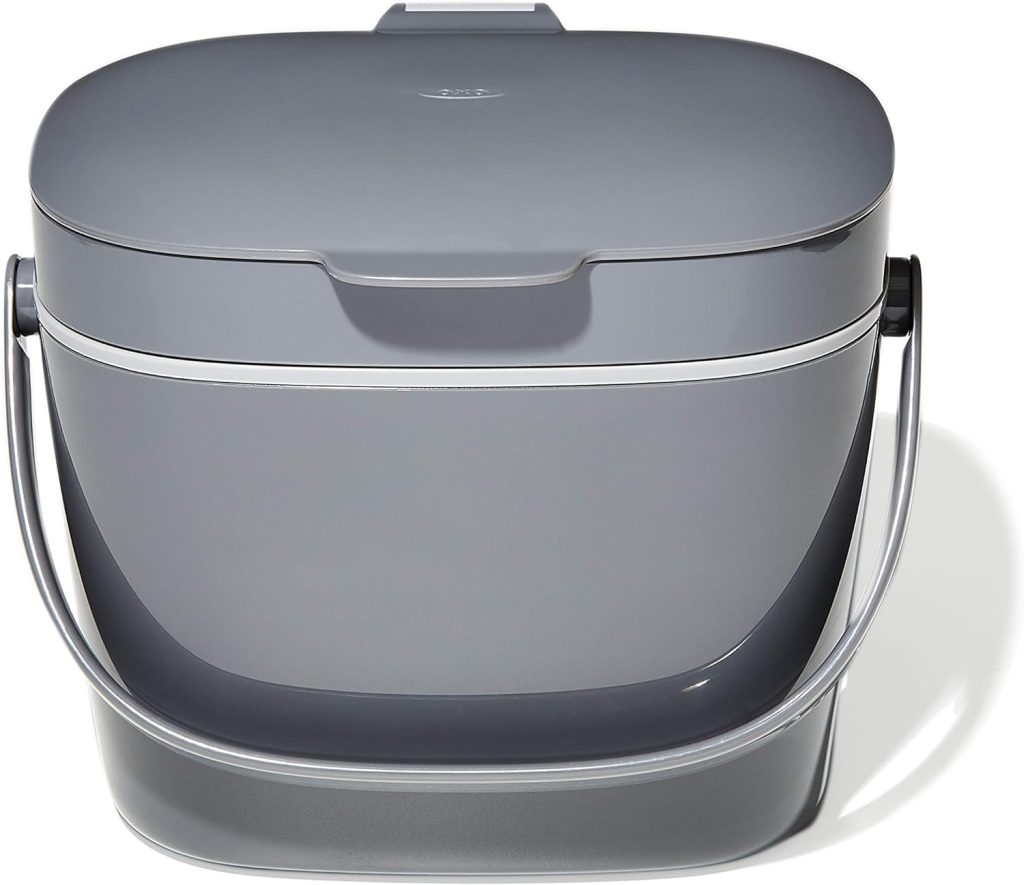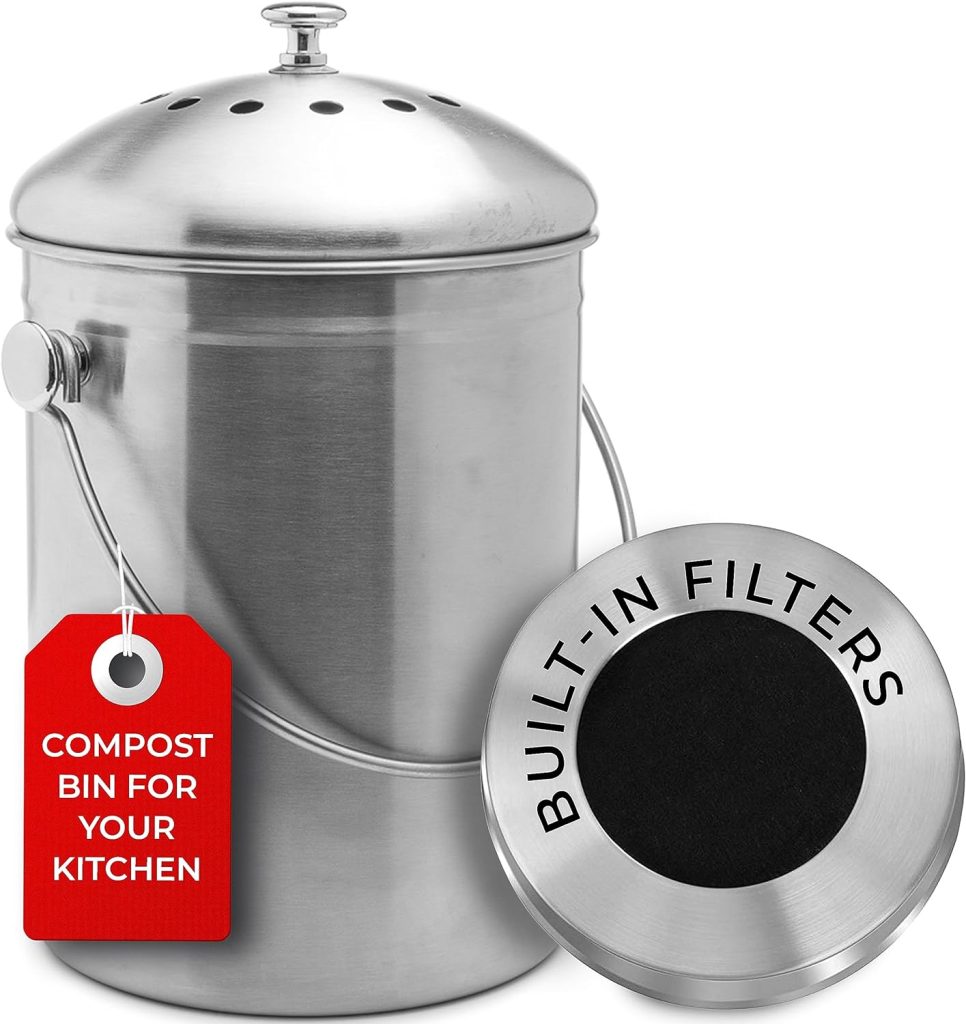Compost Bin
*As an Amazon Associate, I earn from qualifying purchases. Please see our disclosure to learn more.
A compost bin is a container used for composting organic materials. Composting is the process of decomposing organic waste, such as food scraps, yard trimmings, and other biodegradable materials, into nutrient-rich soil conditioner known as compost.
Compost bins are used to facilitate this process by providing a contained environment where microorganisms can break down the organic matter aerobically (with oxygen).
Basically, composting offers several benefits, including reducing waste sent to landfills, producing nutrient-rich soil for gardening, and reducing greenhouse gas emissions. Properly managed compost bins can turn organic waste into a valuable resource for improving soil health and sustainability.
Compost Bin Types
Compost bins come in various shapes, sizes, and designs. Some common types include:
- Tumbler Composters: Users can rotate or turn this type of compost bin. This feature helps aerate the compost and speed up the decomposition process.
- Stationary Bins: These are static bins that allow composting to occur naturally through microbial activity. They often have openings or vents to allow airflow.
- Worm Bins (Vermicomposting): Worm bins contain special types of worms, such as red wigglers. Basically, the said worms can break down organic matter into compost through their feeding and digestion process.
- Indoor Composter: This is a compact compost bin designed for use indoors. They are common in kitchen spaces, to compost food scraps and other organic waste.
Benefits of Composting
Here are some of the top benefits of employing composting in your gardening operation:
- Environmental sustainability: Composting reduces landfill waste and methane emissions, mitigating greenhouse gas effects.
- Soil enrichment: Compost enriches soil with essential nutrients, enhancing plant growth and overall soil health.
- Cost savings: By producing nutrient-rich compost at home, you reduce the need for store-bought fertilizers, saving money in the long run.
- Waste reduction: Composting diverts organic waste from landfills, minimizing the strain on waste management systems and promoting a circular economy.



